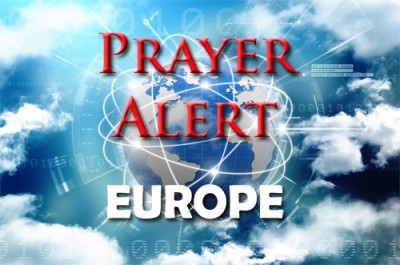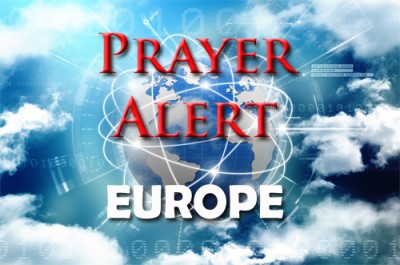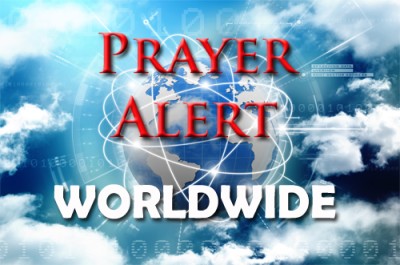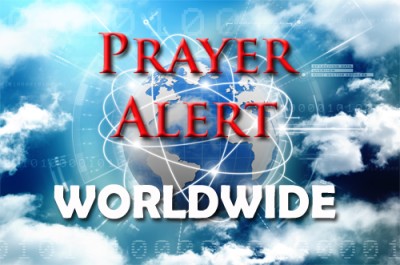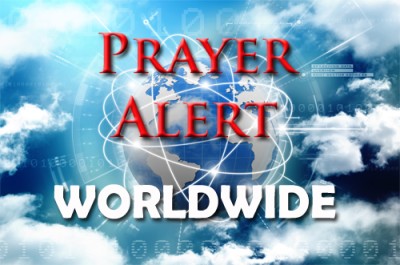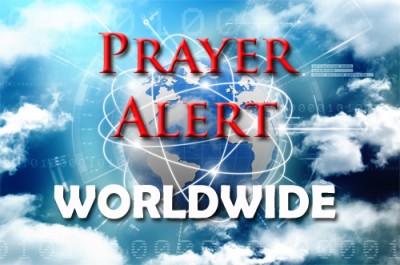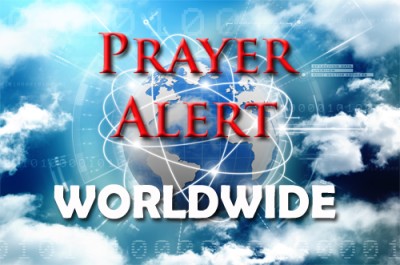US officials have arrived in Moscow to discuss a proposed thirty-day ceasefire between Russia and Ukraine. Special envoy Steve Witkoff hopes to persuade Russia to agree to the deal, which Ukraine accepted earlier this week after talks in Jeddah. The Kremlin confirmed discussions were planned but gave no details. US secretary of state Marco Rubio said that the ceasefire decision now rests with Russia, while Donald Trump warned of financial consequences if Russia rejects peace. Meanwhile, Russia claims to have recaptured 86% of the Kursk region, which Ukraine invaded last year. Vladimir Putin, visiting the area, has reportedly ordered a full military push to reclaim all lost territory. Events this week show a remarkably swift turnaround from a week ago: see
Voters in Portugal are growing frustrated as another snap election looms, with little hope for stability. Prime minister Luis Montenegro’s centre-right government collapsed after losing a confidence motion, forcing the president to call a new parliamentary election, probably in May. This will be the third election in three years. Many believe the political elite have failed for decades and fear worsening instability. One political analyst has warned the election may produce another inconclusive result, leading to continued uncertainty. Opinion polls show the centre-left Socialists and Montenegro’s Democratic Alliance (AD) in a deadlock at around 30%. While the political right holds a majority, AD refuses to work with the far-right Chega party. Voter discontent is high, with concerns about low turnout. Montenegro denies wrongdoing after his business dealings triggered the crisis. Meanwhile, citizens fear government inaction will further harm the nation.
The UN human rights office reports that at least 111 civilians, including entire families, were killed in recent violence in Syria’s coastal region, though the true toll is probably much higher. Predominantly Alawite towns (most Alawites were supporters of the overthrown president Bashar al-Assad) were targeted in apparent sectarian attacks, following an ambush on 7 March which killed thirteen security personnel. Alawite gunmen retaliated by storming villages, executing civilians, looting, and even attacking hospitals. The UN verified the deaths of 90 men, 18 women, and three children: however, one monitoring group has said that 1,225 civilians, most of them Alawites, have been killed.This marks the worst violence since Assad was ousted in December, ending a 13-year civil war which claimed 600,000 lives. The UN has urged thorough investigations, while Syria’s new government has pledged accountability. An independent committee is gathering evidence to bring perpetrators to justice.
Mark Carney, prime minister-designate, has expressed willingness to renegotiate a trade deal with Donald Trump, provided Canadian sovereignty is respected. His remarks came as Canada imposed C$29.8 billion (£16 billion) in retaliatory tariffs on US imports after Trump enacted 25% tariffs on steel and aluminium. Trump has justified the move as a national security measure, aiming to bolster domestic industries. However, Carney condemned the tariffs as ‘unjustified’, warning of economic instability. Canada, the largest foreign supplier of these metals to the USA, is heavily impacted. Ottawa’s retaliatory tariffs include steel, aluminium, and other goods, with more measures set to take effect. The Bank of Canada has cut interest rates to 2.75% to cushion the economic fallout. Meanwhile, the EU has taken strong retaliatory measures against Trump’s tariffs coming into effect: see
Bangladesh: priorities for interim leader
13 Mar 2025Bangladesh’s interim leader, Nobel laureate Muhammad Yunus, admits he was ‘dazzled’ when unexpectedly asked to take charge after Sheikh Hasina was ousted last year. Yunus, who returned to lead the country following a student-led uprising, prioritises restoring order and fixing the economy, which he describes as ‘devastated’. He plans to hold elections between December 2025 and March 2026, contingent on necessary reforms. Meanwhile, Hasina remains in exile in India, wanted in Bangladesh for alleged crimes against humanity. Amid ongoing unrest, critics accuse Yunus’s government of failing to ensure security for her Awami League members, some of whose homes have been vandalised. The interim government faces additional challenges after the Trump administration cut US foreign aid (last year it received $450 million). There are concerns about Bangladesh’s economic and political future: the nation, once hailed for its progress, is now struggling to regain stability under its new leadership.
Cuba has released 553 prisoners, according to an agreement made in January with Joe Biden’s administration. The deal, mediated by the Vatican, was in return for being removed from the US terrorism blacklist. However, Donald Trump has reversed the decision, reinstating sanctions and temporarily halting the process. The USA had asked for ‘political prisoners’ to be released, but Cuban authorities classified the individuals as having committed diverse crimes. Around 200 of those released had been detained because they took part in the huge anti-government protests in July 2021, though officials claim they were convicted for other reasons. The protests, the largest since the 1959 revolution, stemmed from economic struggles, food shortages, and dissatisfaction with government policies. The release follows pressure from the USA, EU, Catholic Church, and human rights groups to free those jailed.
A medical milestone has been achieved: the first patient implanted with a durable artificial heart has been discharged from hospital. BiVACOR, a titanium mechanical blood pump, was successfully implanted in a man suffering from severe heart failure. Performed at St Vincent’s Hospital in Sydney, the six-hour surgery marked a breakthrough in cardiac care. Designed to function indefinitely, BiVACOR operates using magnets to eliminate mechanical wear. Queensland-born inventor Daniel Timms spent years developing the device, inspired by childhood experiences working with his father, who later died of heart failure. The patient, previously too weak to walk, lived with the device for over 100 days before receiving a human heart transplant. Doctors anticipate BiVACOR could eventually replace the need for human donors. With more implants planned, this innovation offers new hope to those awaiting transplants.
Tyler Blevins, known as 'Ninja’, is one of the world’s most influential video-game streamers, with millions of followers across Twitch and YouTube. Recently, he made a bold faith statement during a livestream, declaring, 'Jesus is King’. This isn’t the first time Blevins has spoken about his beliefs. In 2019, he shared how doctors pressured his mother to abort him due to health concerns, but she refused, choosing life for him and his brothers. He calls her a 'saint' for that decision. During his recent faith discussion, Ninja encouraged respectful conversations about religion, urging people to listen rather than argue. He emphasised that faith should stem from a personal relationship with God, not fear. Blevins also highlighted the power of prayer, sharing how daily prayer has positively transformed his life. His core message is simple: love and respect everyone, regardless of their beliefs.
